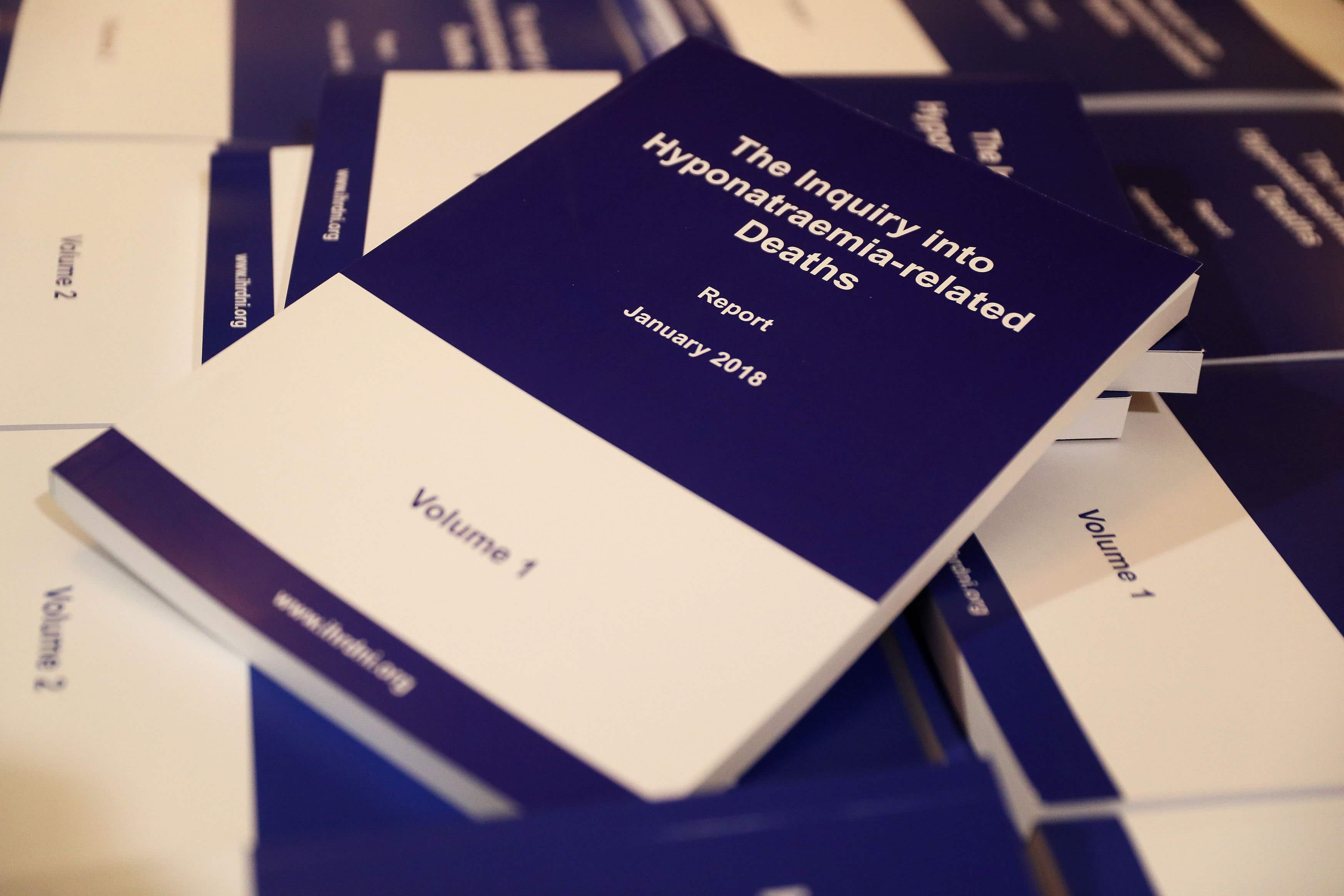Doctor tried to conceal circumstances of nine-year-old’s death – tribunal
Claire Roberts died at the Royal Belfast Hospital for Sick Children in October 1996.

Your support helps us to tell the story
From reproductive rights to climate change to Big Tech, The Independent is on the ground when the story is developing. Whether it's investigating the financials of Elon Musk's pro-Trump PAC or producing our latest documentary, 'The A Word', which shines a light on the American women fighting for reproductive rights, we know how important it is to parse out the facts from the messaging.
At such a critical moment in US history, we need reporters on the ground. Your donation allows us to keep sending journalists to speak to both sides of the story.
The Independent is trusted by Americans across the entire political spectrum. And unlike many other quality news outlets, we choose not to lock Americans out of our reporting and analysis with paywalls. We believe quality journalism should be available to everyone, paid for by those who can afford it.
Your support makes all the difference.A doctor acted dishonestly in attempting to conceal the true circumstances of the death of a nine-year-old patient, a tribunal has ruled.
The parents of Claire Roberts were told at the time that a viral infection had spread from her stomach to her brain and that medics had done everything possible to save her.
But a television documentary – UTV’s When Hospitals Kill, broadcast in October 2004 – raised concerns about the treatment of a number of children who died from hyponatraemia, which occurs when there is a shortage of sodium in the bloodstream.
After the screening, a public inquiry was announced as Alan and Jennifer Roberts sought answers from the Royal Belfast Hospital for Sick Children about the care of their daughter, who died in October 1996.
On Monday, a Medical Practitioners Tribunal Service panel found that Dr Heather Steen was not aware of the risks of “dilutional hyponatraemia” at the time but there was “far more awareness” of the issue after the UTV documentary.
Tribunal chairman Sean Ell said: “The tribunal accepted that Dr Steen was not attempting to conceal details of, or failings in, Patient A’s care in 1996/97, when she believed there was a viral cause of death.
“However, once dilutional hyponatraemia as a result of fluid and electrolyte mismanagement became a live issue from 2004, Dr Steen persisted with her focus on a viral cause and continued to emphasise this aspect whilst seeking to downplay, qualify and minimise or ignore findings to the contrary.”
He said this “misrepresentation” continued through the consultant paediatrician’s involvement with Claire’s parents, at a coroner’s inquest – ordered after the documentary screening – and the public inquiry.
Mr Ell said: “It was done in order to conceal the true circumstances of Patient A’s death, and in particular, the possible failings in Patient A’s care.
Whilst the failings may not have changed the tragic outcome of Patient A’s death, her parents were seeking answers to what happened and were entitled to full transparency
“Dr Steen had many opportunities to reconsider and be open and transparent, but chose to maintain her dishonesty over the course of events after 2004.
“Whilst the failings may not have changed the tragic outcome of Patient A’s death, her parents were seeking answers to what happened and were entitled to full transparency.”
Dr Steen denied the allegations but did not give evidence.
The General Medical Council had argued Dr Steen tried to cover up the circumstances of Claire’s death to “avoid scrutiny”.
The MPTS panel, sitting remotely, will next consider whether Dr Steen’s fitness to practise is impaired by reason of misconduct.
The hearing continues.
The hyponatraemia public inquiry concluded in 2018 that Claire’s death was the result of “negligent care” from an overdose of fluids and medication.
A fresh inquest in 2019 ruled her death was “caused by the treatment she received in hospital”.